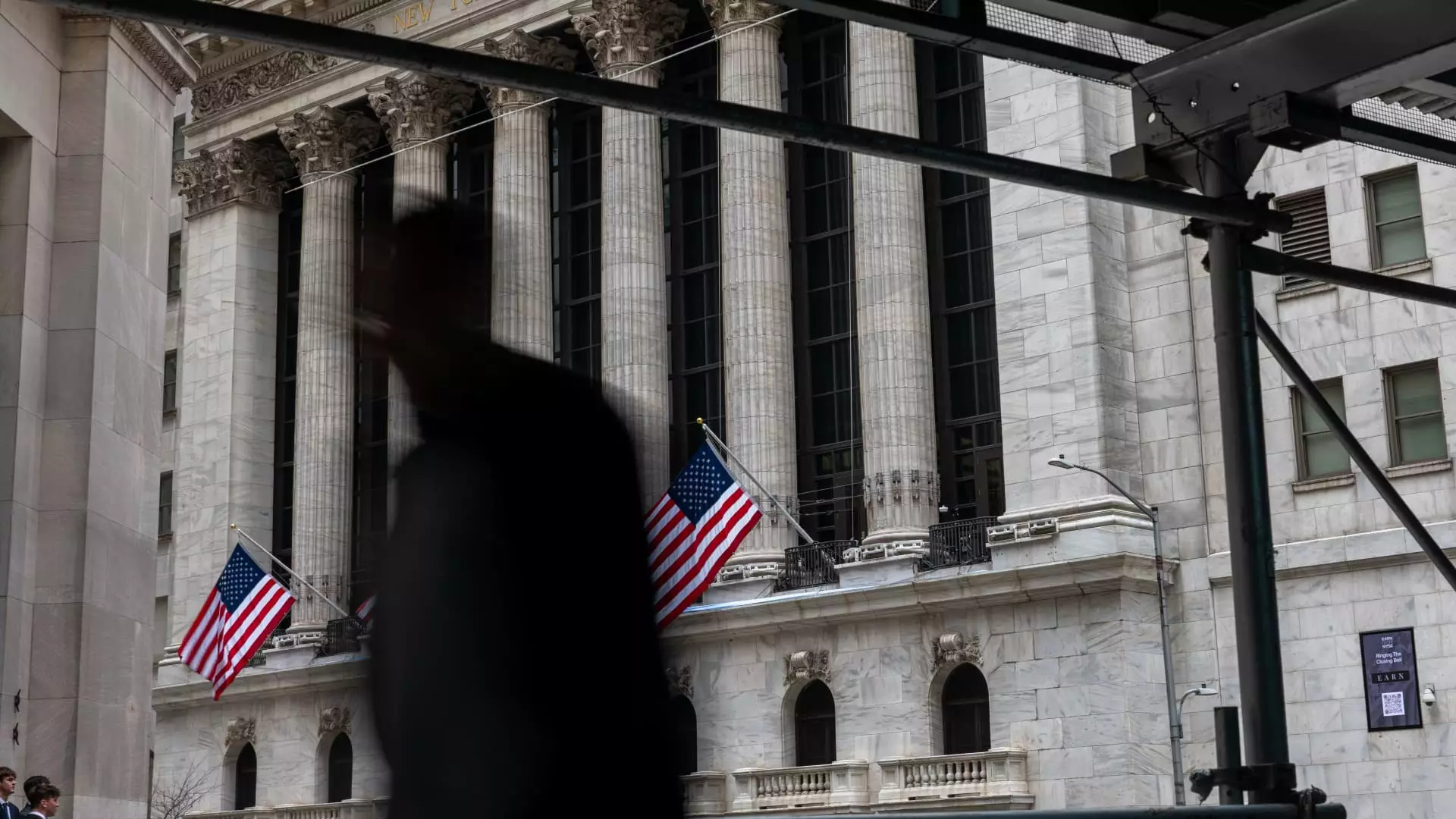The trade conflict between the United States and China has escalated significantly, evolving into full-blown economic warfare. Recently, Evercore ISI weighed in on this dynamic, suggesting that China’s quick response to U.S. tariffs is not merely reactive but a strategic maneuver aimed at exerting pressure on the U.S. equity markets. Strategist Neo Wang indicates that the timing of China’s announcement—coinciding with the U.S. markets being closed for a holiday—was likely deliberate, intended to maximize the impact on American stocks. This insight sheds light on a disturbing trend: the battle lines are not just drawn on industry standards or trade balances, but in the realm of financial confidence itself.
China’s decision to impose an outrageous 34% additional tariff on U.S. imports is arguably a retaliation ferociously calculated to strike at the heart of American financial resilience. This action was simultaneous with President Trump’s similar hike in tariffs, bringing the total effective levy rate on Chinese imports to an eye-watering 54%. Such aggressive maneuvers signal a significant departure from negotiation tactics rooted in mutual benefit. Instead, they illuminate a stark reality where the economy is treated more like a battlefield than a collaborative environment for trade relations.
Market Reactions and Psychological Warfare
The immediate aftermath of these tariff announcements sent U.S. markets spiraling, with the Dow Jones Industrial Average plummeting by over 1,400 points in a single day. The S&P 500 and Nasdaq Composite didn’t fare much better, officially entering bear market territory. The economic shock reverberated through Wall Street, demonstrating that financial markets remain susceptible to geopolitical tensions.
While the plummeting stocks reflect raw economic data, they also reveal a deeper psychological struggle. Fear and uncertainty grip investors, and the indiscriminate nature of these newly imposed tariffs means that American companies, regardless of their dependency on Chinese trade, face the specter of looming losses. This is psychological warfare as much as it is an economic confrontation. China’s strategic timing took advantage of market holidays, projecting strength while simultaneously sowing panic among American investors.
The Cost of Defiance
It is critical to consider the implications of this trade aggression from both sides. While China may celebrate its ability to inflict damage on the U.S. stock market, this blanket tariff approach carries risks that could backfire on its own economy. Many industries in China significantly rely on U.S. technology imports; hence, a retaliatory strategy rooted solely in tariffs may hinder rather than help advancement in critical sectors. The trade war may not only derail U.S. markets but also destabilize China’s economic landscape, proving that both nations are imbedded in a web of reliance that is as complicated as it is precarious.
Neo Wang reflects on this duality by noting that escalating tariffs could be a strategic attempt to strengthen China’s bargaining position. However, it also indicates a dangerous gamble that could lead to unforeseen negative impacts both domestically and internationally. The underlying economic fundamentals suggest that while Beijing aims to appear tough, the realities of global interconnectedness mean this hard-line stance could carry ramifications detrimental to their growth ambitions.
Negotiation and the Path Forward
The potential for a renewed negotiation between the U.S. and China looms large on the horizon, but it comes with conditions that are far from simple. The hardening of diplomatic approaches by both sides could either bring them to the negotiating table or escalate the standoff further. The common narrative among analysts suggests a critical need for a reset in manners of dialogue that favors cooperation over confrontation.
Trade negotiations should never turn into wars because, fundamentally, warfare represents a failure of diplomacy. However, if the current trajectory continues, we may find ourselves in an era where nations, instead of collaborating for mutual prosperity, engage in tit-for-tat economic sabotage. This is not a sustainable future for the global economy, and the cost will inevitably be borne by ordinary citizens.
As hostile rhetoric continues to dominate discussions, it is essential to prioritize reason over aggression. Choices made today will reverberate through the economy for years to come, impacting everything from job growth to technological advancements. A proactive approach to diplomacy, rather than retaliation, could foster a healthier economic climate for both the U.S. and China, leading toward a more inclusive and prosperous global economy.


Leave a Reply